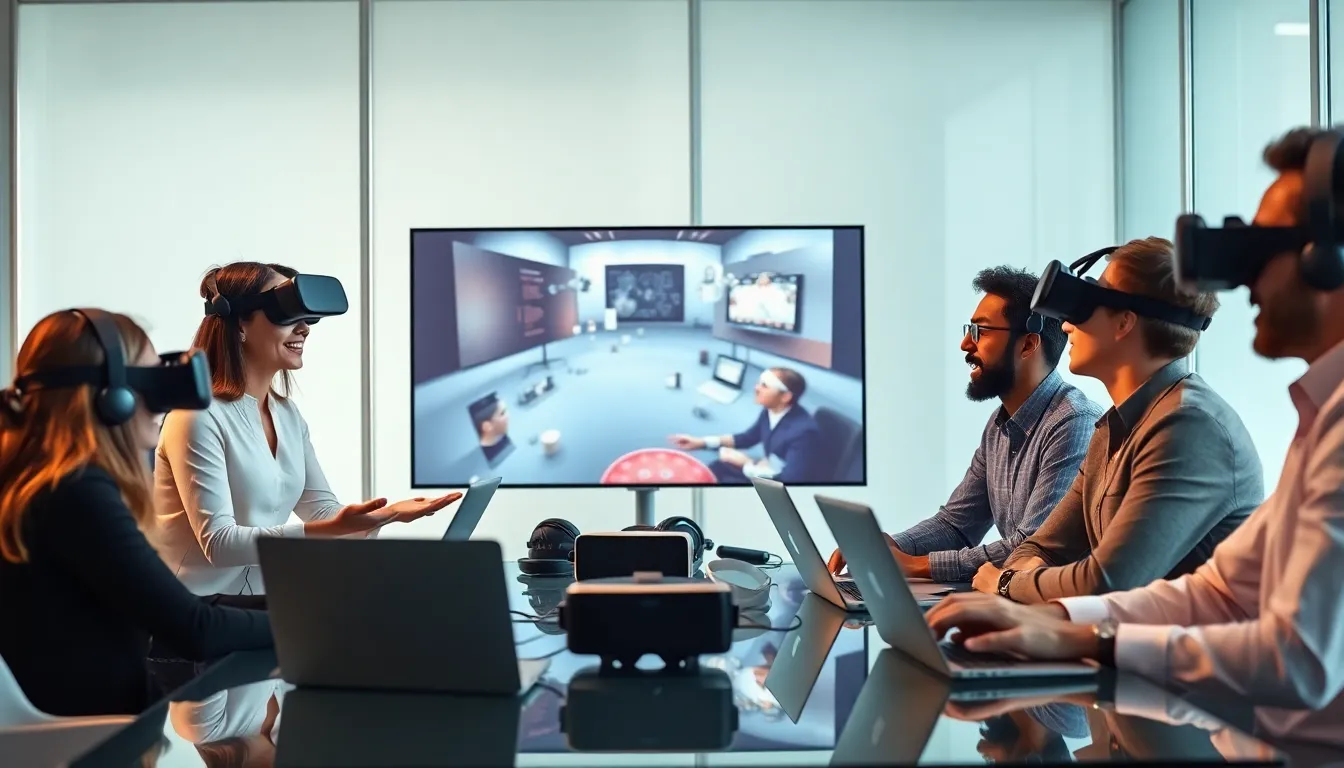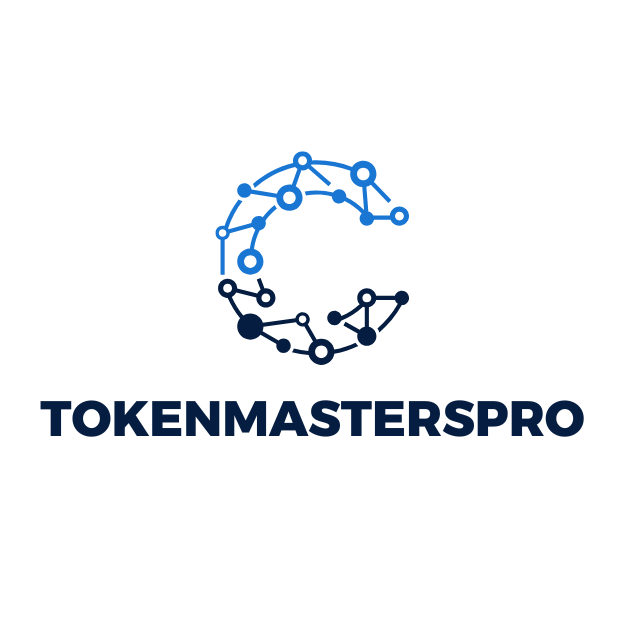Imagine stepping into a world where your wildest dreams come to life, all thanks to virtual reality. This technology is not just transforming how we play games or watch movies, it’s reimagining the workplace. As demand for virtual reality jobs continues to surge, the landscape is becoming richer with opportunities. But how do you jump into this career? With a bit of humor and a dash of insight, this guide will illuminate the path to a future filled with possibilities. Get ready to explore the fascinating realm of virtual reality careers.
Table of Contents
ToggleThe Growing Demand for Virtual Reality Professionals

The rapid evolution of virtual reality (VR) has ignited a firestorm of interest across various sectors. Companies have begun to recognize that VR can enhance user experience in ways traditional methods simply cannot. From gaming and entertainment to education and real estate, the applications are endless. This increased recognition correlates directly with an explosive demand for professionals skilled in VR technology. According to recent studies, the global VR market is projected to reach nearly $57 billion by 2027. That’s quite a leap. As businesses continue to explore how VR can streamline their operations and engage customers, there’s a palpable buzz around creating immersive experiences. In short, if you’ve ever considered a career in VR, now is the prime time to jump in and ride the wave.
Key Roles in the Virtual Reality Industry
Diving into the virtual reality industry unveils a plethora of exciting roles. Whether one aspires to be a developer, designer, or storyteller, opportunities abound. Here are some of the key positions filling up the VR job market:
VR Developer
The backbone of any VR project, developers are responsible for creating the virtual experiences themselves. They use programming languages like C# and Unity to bring ideas to life.
3D Artist
A 3D artist crafts the stunning visuals that populate VR environments. These specialists rely on design software to create the vibrant landscapes and characters that make virtual worlds engaging.
UX/UI Designer
While developers build the framework, UX/UI designers ensure the experience is user-friendly. Their job is to connect the player logistically and emotionally to the virtual space, making it intuitive and immersive.
VR Content Producer
Much like a movie producer, VR content producers oversee a project from concept to execution. They coordinate the team, set the budget, and manage timelines to ensure the final product shines.
Each of these roles requires a unique skill set, combining technical expertise with creative vision. The beauty of the VR industry lies in its diversity, and there’s something for everyone.
Skills Required for Virtual Reality Careers
Navigating the world of virtual reality demands an arsenal of skills that are essential to thrive.
Technical Proficiency
Developers and engineers must have a solid foundation in programming languages. Unity and Unreal Engine are the industry standards for VR development. A basic understanding of graphics and rendering techniques is also pivotal.
Creativity
Creative thinking is paramount in VR roles. From designing breathtaking landscapes to crafting intuitive user experiences, imagination plays a key role in shaping how users interact with these new worlds.
Problem-Solving Skills
Challenges abound in this fast-evolving field. Professionals must exhibit strong problem-solving skills to tackle technical glitches and optimize user experience continually.
Communication Skills
Effective collaboration is crucial in virtual reality projects. Whether one is providing feedback, brainstorming creative ideas, or collaborating on technical elements, interpersonal skills can make or break a project.
Summarizing, aspiring virtual reality professionals need a mix of technical know-how, creativity, problem-solving abilities, and excellent communication skills to successfully launch their careers.
Educational Pathways into Virtual Reality Jobs
Breaking into the virtual reality sector often begins with education. Several pathways can lead to a successful VR career:
Degrees
Pursuing a degree in fields like computer science, game design, or digital media can provide a strong foundation. Many universities now offer specialized programs focused on virtual reality and immersive technologies.
Online Courses
For those looking versatile learning options, online platforms like Coursera and Udacity offer specific courses in VR development, programming languages, and 3D modeling. These can be affordable and flexible solutions for skill-building.
Certifications
Certain certifications can bolster one’s resume. Programs offered by recognized organizations can validate expertise in specific software or programming languages relevant to VR applications.
Industry Events
Attending conferences, workshops, and hackathons offers networking opportunities and valuable insights into the VR field. Engaging in the community can lead to job prospects and enhance skills through peer interaction.
Future Trends in Virtual Reality Employment
As technology advances, the future of virtual reality employment looks bright and dynamic. Several trends are emerging:
Increased Automation
Automation may play a vital role in streamlining processes within VR development. Tools and software will evolve, allowing content creators to produce immersive experiences with greater efficiency.
Expansion Beyond Gaming
While gaming remains a significant sector, VR is making inroads into healthcare, training simulations, and virtual meetings. This diversification presents new job opportunities across sectors.
Remote Work Opportunities
As remote work continues to flourish, VR is being utilized for virtual collaboration spaces. Professionals in the VR field can expect an expanding market for remote roles in the coming years.
Focus on Accessibility
There is a growing awareness around creating inclusive experiences, ensuring VR technology is accessible to everyone. Job seekers who can contribute to this aspect will be highly regarded.
Challenges Faced by Virtual Reality Job Seekers
Even in this exhilarating field, prospective job seekers face certain hurdles:
Skill Gaps
The rapid pace of technological advancement means new tools and platforms can create a gap in knowledge. Continual learning is essential to stay relevant in this evolving landscape.
Competition
As the demand for VR professionals rises, so does the competition. Candidates must demonstrate a solid portfolio and relevant experiences to stand out.
Understanding Trends
Navigating the fast-changing landscape demands awareness of emerging trends in VR. Those out of touch may find themselves unprepared for interviews or job requirements.


